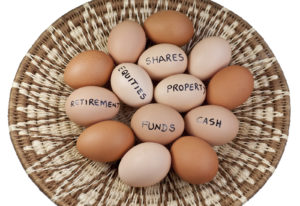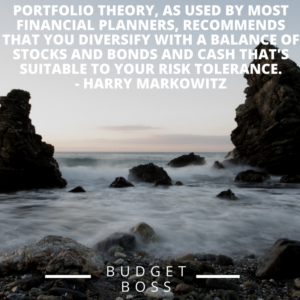Tuesday, November 21, 2017
The Name is Bond, Municipal Bond: Fixed Income Explained
You wouldn’t believe how many people I have helped open investment accounts who had no idea what they were previously invested in. This is troubling to me on many levels. True investment planning considers many factors such as time horizon, goals and risk tolerance. I have seen several of my younger clients invested solely in straight cash for a retirement account that they don’t plan on using for over 30 years. While I would never recommend that, I would stress that understanding what the dynamics of each type of investment are is very important. We have all heard the phrase, “high risk, high reward.” Conversely, with the fixed income market, the game is, “low risk, low reward.” It is everyone’s goal to make money, but can you handle the swings of the stock market while you ride the wave? Some people can’t and there is nothing wrong with that. You must be comfortable in what you are invested in. Today I will explain what fixed income is and how exposure to the fixed income market can benefit you. Slow and steady often wins the race, so let’s find out why.
What is Fixed Income?
Fixed income is a type of investing style for which real return rates or periodic income is received at regular intervals and at reasonably predictable levels. Fixed-income investors are typically retired individuals who rely on their investments to provide a regular, stable income stream. This demographic tends to invest heavily in fixed-income investments because of the reliable returns they offer. Fixed Income investing is largely affected by the current interest rate. This is called the Key Rate and is determined by the Federal Government.
Let’s Make It More Simple
Fixed income is essential a loan but instead of you borrowing from someone like the bank, outside groups are borrowing from you. These outside groups include countries, districts, cities, and companies. These outside groups take the money you give them, use it for their purposes, usually to grow their organization and then pay you your money back plus interest. All the details of the agreement are determined beforehand. Some examples of fixed income are:
Bonds
A bond is a debt investment in which an investor loans money to an entity (typically corporate or governmental) which borrows the funds for a defined period of time at a variable or fixed interest rate. Bonds are used by companies, municipalities, states and sovereign governments to raise money and finance a variety of projects and activities. Owners of bonds are debtholders, or creditors, of the issuer.
A Simple Trick That Will Help You Understand The Bond Market – Time Money
Guaranteed Investment Certificate’s
A Guaranteed Investment Certificate (GIC) is a secure investment that guarantees 100% of the original amount that you invested. Your investment earns interest, at either a fixed or a variable rate, or based on a pre-determined formula. GIC’s are issued by financial institutions and pay-out over a fixed amount of time such as 6 months, 1, 5 or 10-year intervals.
Preferred Stocks
A preferred stock is a class of ownership in a corporation that has a higher claim on its assets and earnings than common stock. Preferred shares generally have a dividend that must be paid out before dividends to common shareholders, and the shares usually do not carry voting rights. Preferred stock combines features of debt, in that it pays fixed dividends, and equity, in that it has the potential to appreciate in price. The details of each preferred stock depend on the issue.

Benefits of Fixed Income Investing
Stability is the name of the game when it comes to Fixed Income. Because there are predetermined, regular amounts paid with fixed income investing, the investor knows what to expect and when. For those who are risk-adverse, fixed income provides a great way to grow your money without the ups and downs of the stock market. Some fixed-income investments provide decent returns such as municipal bonds and corporate bonds. For those in retirement, having a slow and steady investment that doesn’t have many surprises is usually what’s best. When your earning days are behind you, it is often best to be in guaranteed investments. Fixed income also can provide solid diversification that can stabilize a portfolio in rough economic times.
The Importance of Diversification – The Balance
Risks of Fixed Income
Fixed Income is generally low risk but there are some ways in which fixed income investing can hurt you.
Inflationary Risk
We have all heard about inflation and even if we haven’t we all know things cost more every year. The same effect that makes your cup of coffee more expensive every year, makes your money worth a little bit less every year. With fixed income investing, lower risk means a lower return. This can often create inflationary risk. For instance, if you receive a 2% return on investment with your 1-year bond and inflation grew at 3% that year, you, in fact, lost money. This doesn’t mean that the bond was a bad idea, as you would have lost more if you just had your money laying under your mattress. All it means is that your return did not beat inflation and your investment wasn’t completely effective.
Inflation Explained – Investopedia
Capital Risk
Your money may be tied up for long intervals when you invest in fixed income. For instance, if you purchased a 5-year GIC, you now are not able to invest that money in possibly higher return items for those 5 years. You also may be at risk from the bond issuer become insolvent, more likely with corporate bonds. If the company that issued you a bond goes bankrupt, you might not get your money back. This is far less likely when government actors issue you bonds like federal, provincial or municipal bonds. Like any other investment, it is wise to know and understand the group that issues you the bond as your money is invested in their stability.

What I think
I think fixed income is a very valuable piece of any diversified portfolio. Do I like the returns? No. I do however love the stability and predictability. I own some fixed income and think everyone should take it into consideration when investing. I also think that it is the best bet for those at or nearing retirement as they have built up enough capital to generate good returns even with lower interest rates. They are also not in a position to be messing around with the stock market and any fluctuation could hurt their livelihood during retirement.
Thanks for tuning in today as Market Week continues at Budget Boss. Tune in tomorrow as we discuss equities and how they fit into your investments. If you wish to learn more about fixed income, please message me at joe@budgetboss.ca. Have a great day friends!
“Portfolio theory, as used by most financial planners, recommends that you diversify with a balance of stocks and bonds and cash that’s suitable to your risk tolerance.” – Harry Markowitz

Email – joe@budgetboss.ca
Follow Budget Boss on – Facebook LinkedIn Twitter Instagram Pinterest Quora

